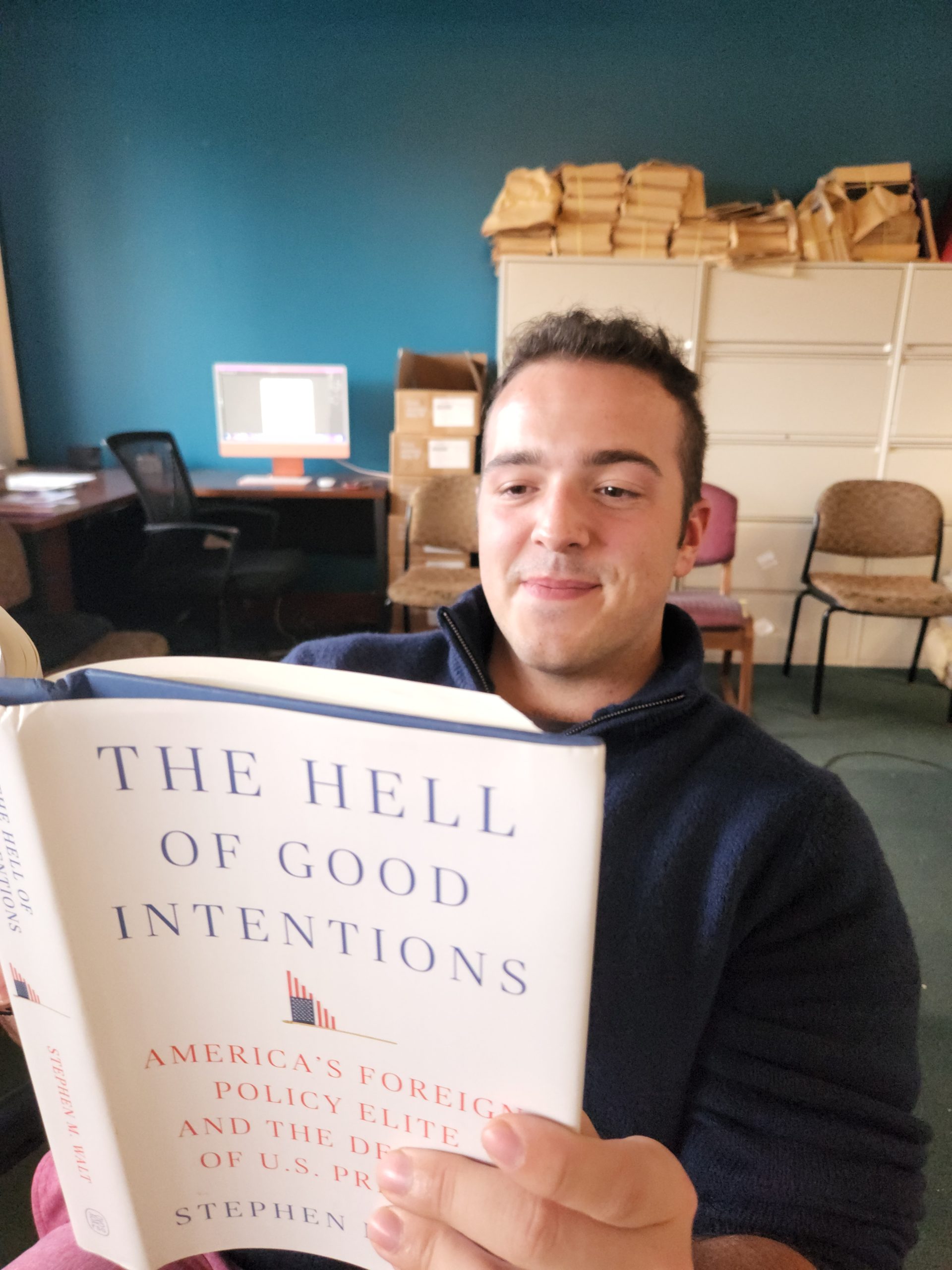Worth the Nonfiction Read: “The Hell of Good Intentions”
Reading numerous books is an old-time advantage that has been tested, repeated and replicated by many. People such as influential leaders, politicians, wartime leaders and many others often reflect on how simple– yet important– reading was to their journey. The United States Founding Father Thomas Jefferson stressed the importance of reading in his life. “I cannot live without books,” Jefferson once said to fellow Founding Father John Adams. Jefferson’s own library cannot be found in Washington D.C., stored in the Jefferson Library of Congress instead. Likewise, Fredrick Douglass also understood the importance of a good book. “Once you learn to read, you will be forever free,” Douglass said.
Nonfiction is a genre of reading that often goes under the radar, although it is important in understanding the magnitude of events whether historical, political or social. Nonfiction provides many people with what the mainstream media cannot. It is a source of information that is generally untapped by the public but yet utilized by those who understand its importance. There is a reason why many leaders in all fields read hundreds of books, often on topics unrelated to their expertise.
The book in question today is “The Hell of Good Intentions: America’s Foreign Policy Elite and the Decline of US Primacy” by Stephen Walt. The book by Walt is one that reads like a research paper, yet flavored in a way that keeps you interested. Walt does an amazing job of examining U.S. failures within foreign policy, both yesterday and today. Walt first starts with the U.S. invasion of the Middle East, which to this day has left a large stain on the U.S. foreign policy agenda. Walt reflects on the magnitude of the event, not just in its symbolic representation of a changing of U.S. hegemony on the global scale, but also of the changing tide of U.S. foreign policy.
Walt goes on to focus on the idea of “liberal hegemony.” This is the idea that the United States can use its hard power to spread democracy, open markets and spread liberal ideals into every inch of the globe. Such a conception is noted in the book, “The End of History” by Francis Fukuyama. This is a book that was written with the idea that great power competition was over, and liberalism was on the rise. This is an assumption that has proven to be dangerously wrong.
“The Hell of Good Intentions” goes on to focus on the failure of liberal hegemony and the damage it has done on the global scale to the United States’ reputation. Walt not only focuses on specific foreign events but the foreign circle within the United States, which has directed bad policy for the past twenty years. President Donald Trump, the Foreign Service, think tanks and the State Department are all examined, critiqued and “revised” within Walt’s work. This is done with the hope tomorrow’s foreign policy can get it right, especially at a time when international cooperation is vital.



